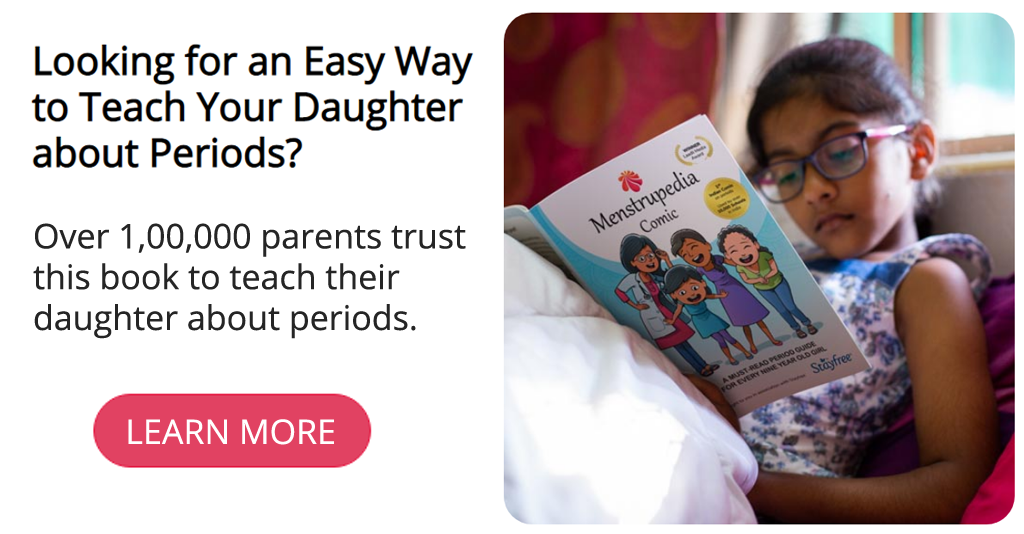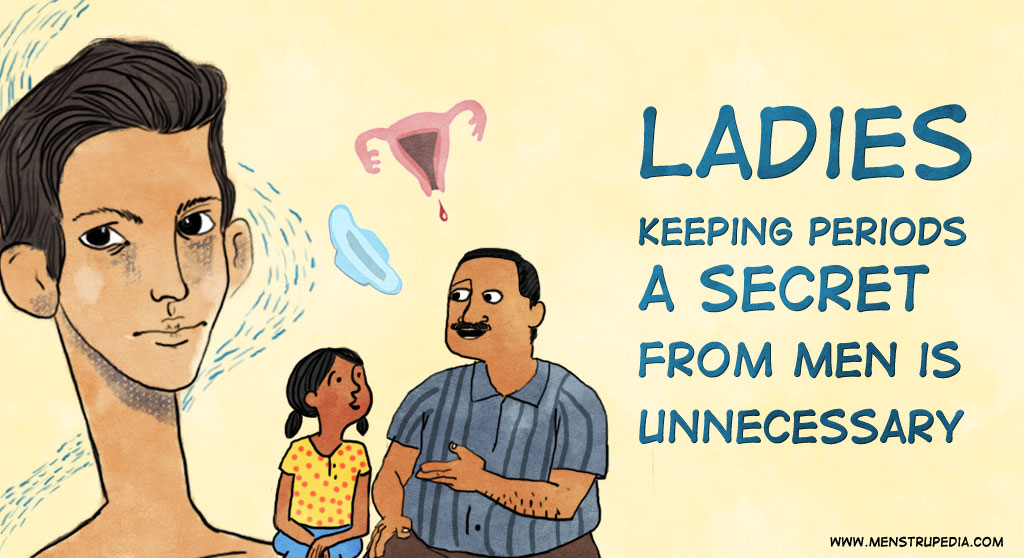‘Periods’ are still a taboo in many parts of India and a mere mention of them is a big deal. The origin of the same dates back to Vedic times and is often linked to Indra’s slaying of Vritra. It has been declared in the Vedas that the guilt of the Brahmana-murder appears every month as menstrual flow in women as they had taken it upon themselves to be a part of Indra’s guilt. In the Hindu faith, women are prohibited from participating in normal life while menstruating. Scientifically however, it is known that the actual cause of menstruation is ovulation followed by lack of pregnancy/conception that results in bleeding from the endometrial lining which is then followed by the next cycle. Therefore, there seems to be no reason for this notion to persist that menstruating women are ‘impure.’
Let’s bust some biological myths about periods.

- First of all, it’s imperative to be cognizant of the fact that a woman’s menstrual cycle is not the same as her period. The actual time that a woman bleeds is known as menstruation, but her menstrual cycle is the entire time from one period’s beginning to the next. Although it’s widely circulated that a woman’s menstrual cycle lasts 28 days, that’s only an average number. Some women’s cycles are much longer, from 29 to 35 days, while others’ can be shorter. Conditions like travel, weight fluctuation, emotions, and medication can all disturb when a woman’s period occurs. So, comments about how women are “always on their time of the month” aren’t cherished. Every period is like every woman — exceptional to the individual.
- The pain we get throughout a period is real. We’re not talking about headaches or bumping into sharp corners. Some of us have to take off work and curl up in bed, hoping the pinching cramps will subside because it’s that bad. This condition even has a medical name: dysmenorrhea. In fact, around 20 percent of women have dysmenorrhea that’s severe enough to interfere with their daily activities. This condition affects our ability to focus, makes us more anxious, and can make us absolutely unpleasant. It’s also not anything you’ve experienced before.
- There’s a very real physical change in a woman’s body during this time. In the days leading up to the start of a woman’s period — when she’s “PMSing” — their levels of estrogen nose-dive, while her levels of progesterone sharply increase. Estrogen is linked to serotonin, the “happy hormone,” and progesterone is linked to the part of the brain that causes dread, anxiety, and despair. The effects of hormones on mood are complicated, and while progesterone may depress some emotions, it has a mood-balancing effect. It may be tempting to write off seemingly drastic changes in moods as “just hormones,” but mood changes caused by hormones are still real. It may occur on a more monthly basis for us, but it doesn’t invalidate our feelings.
- Talking of hormones, women have been faulted of being “hormonal” for a long time. Some male figures in the past have even equated our feelings to hysteria, as if it’s an illness, to explain female behavior. News flash: everyone has hormones, and nobody likes them to be messed with. Even men. Consider this one study on male contraception, which was discontinued because participants couldn’t handle contraception’s side effects of acne, injection pain and emotional disorders. Women accept the very same side effects with their birth control measures, even if they negatively impact our overall well-being.
- Period blood isn’t rejected body fluids or the body’s way of flushing out toxins. Think of it as evolved vaginal secretion — there’s a little bit of blood, uterine tissue and mucus lining. But it doesn’t change whether or not we can have sex, and it doesn’t mean conditions are less than ideal down there. Period blood is very different from blood that moves continuously through the veins. In fact, it’s less concentrated blood. It has fewer blood cells than ordinary blood.
Concluding, not every woman gets her period and not every female who gets their period are women. Trans men may still get their periods, just as a trans woman might not experience periods.
Menstruation isn’t just a “woman’s” things. It’s a healthy, biological process.
Author: Eram Fatima

Eram Fatima is an Educationist, Freelance writer, Novelist and article writer. She is most concerned about her writing related to misogynistic, women related issues, society, culture, history, literature etc. and the list goes on. Currently, she is writing for an African based agency and penning her first anthology of poems. Here is the link to her Instagram: https://www.instagram.com/ekidmonst/
Edited by: Divya Rosaline







